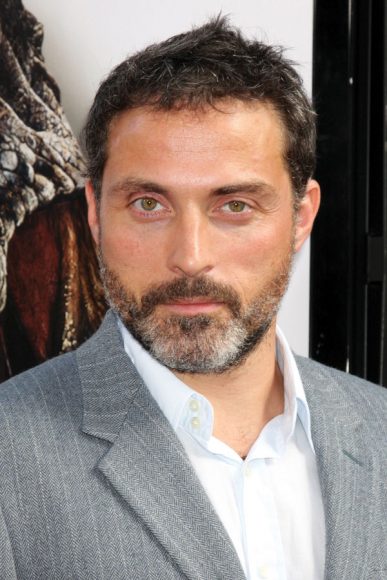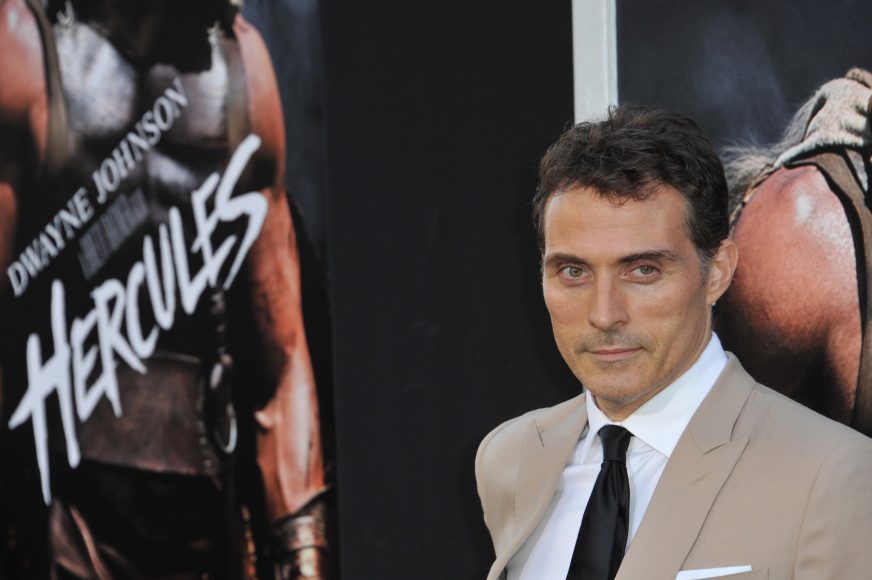No actor likes to be typecast. But British star Rufus Sewell — who has ignited the small screen recently with two very different roles in PBS’ “Victoria” and Amazon’s “The Man in the High Castle” — has assiduously worked to avoid it.
The son of a struggling, artistic Welsh-Australian family in Twickenham, Sewell told Harper’s Bazaar last year that when he was at The Royal Central School of Speech & Drama in London, “my fear was that I would get stuck in the one thing that came naturally to me, which was comedy. I remember the first time I got offered to play a bad guy, it seemed like a wonderful opportunity to break away from the kind of brooding period drama characters that I always felt pigeonholed in. So I did it as an experiment and, low and behold, I was trapped in a new typecast.
“Now, I think people realize that what I’ve actually been doing all this time is acting, rather than just representing some ‘type’ that I am. And my career is panning out to be the one I kind of always wanted.”
And how. In “Victoria,” which returns to “Masterpiece” on Jan. 13, Sewell nearly stole the first two seasons as the dashing, sympathetic, eminently judicious Lord M — alias William Lamb, the second Viscount Melbourne — who mentors the headstrong young Queen Victoria even as he offers her both a father figure and a safe first crush. Indeed, the scene in season two in which the queen takes her leave of the desperately ill Lord M, leaving him a mechanical, musical birdcage for comfort, was all the more poignant for its proper Victorian reticence.
Ironically, the real Lord M was the victim of the archetype that has also fit Sewell like a kid glove — the Byronic bad boy. As “Victoria” fans well know, Melbourne’s wife, the Anglo-Irish Lady Caroline Lamb, had a most public affair with poet George Gordon Byron, whom she famously described as “mad, bad and dangerous to know.” It was the talk of 1812 only to become more so in 1816 when Lady Caroline did the only thing a notorious woman could do — write a tell-all in the form of a Gothic novel, “Glenarvon.” That Lord M not only survived but thrived amid such scandal — and could reconcile, albeit for a time, with his wife, whose passing he sincerely mourned in 1825 — says something about the man in the statesman.
While Sewell never played Byron, despite bearing more than a passing resemblance — those lustrous raven curls, those cut cheekbones — early in his career he played a Byronic, Chopin-esque political writer, Will Ladislaw, in the superb 1994 BBC adaptation of George Eliot’s novel “Middlemarch.” It was a beguiling performance that set the stage — and whetted fans’ appetites — for his captivating antiheroes (the sensual title character in the BBC/A&E’s “Charles II: The Power and the Passion,” the brilliantly outspoken Alexander Hamilton in HBO’s “John Adams,” an honest but troubled cop in the BBC/PBS’ “Zen”); and his compelling no-goodniks (the Confederate arms-dealing Count Armand in “The Legend of Zorro,” the controlling Crown Prince Leopold in “The Illusionist,” a terrifically underrated film).
Even in Nancy Meyer’s romantic comedy “The Holiday,” a perennial guilty pleasure, he had to humiliate girlfriend Kate Winslet at their newspaper’s Christmas party by announcing he was marrying another. In the upcoming “Judy,” about Judy Garland’s sell-out concerts in London in the late 1960s, he’s Sid Luft, the tough-guy agent who was her third husband.
No doubt, though, many fans are finding his current assignment one of his darkest roles to date. In Amazon’s “The Man in the High Castle,” based on Philip K. Dick’s alternative history novel in which the Axis Powers win World War II, Sewell appears as John Smith, a U.S. Army Signal Corpsman who joins the Nazis and rises to
Reichmarshall of North America where he investigates the American Resistance while living with his family in New York City. This being based on a 1962 novel about the role of propaganda in shaping “truth,” nothing is what it seems, least of all Sewell’s traitorous “villain.”
As he told Daily Actor last summer, “For me, that’s what’s interesting about it, is the fact that there’s a clash between the man (Smith) would’ve been and the man he ended up being. The man he would’ve been is still in there under various layers.”
Much has been made about the parallels between the series’ scenario and our own age of rising nationalism. Though he once referred to President Donald J. Trump as a “catastrophic knob-head” — this after the president said Meryl Streep was “overrated” — Sewell has dismissed comparisons between the series and our own time, except in one respect and that is the ability of the series’ characters and present-day individuals to construct their reality.
“The unfortunate truth is that people who think of themselves as good people, people who think of themselves as moral, as victims, can use that belief to become monsters and not know it,” he told Daily Actor. “People who think they’re Poland, when in fact, they’re Berlin.”






